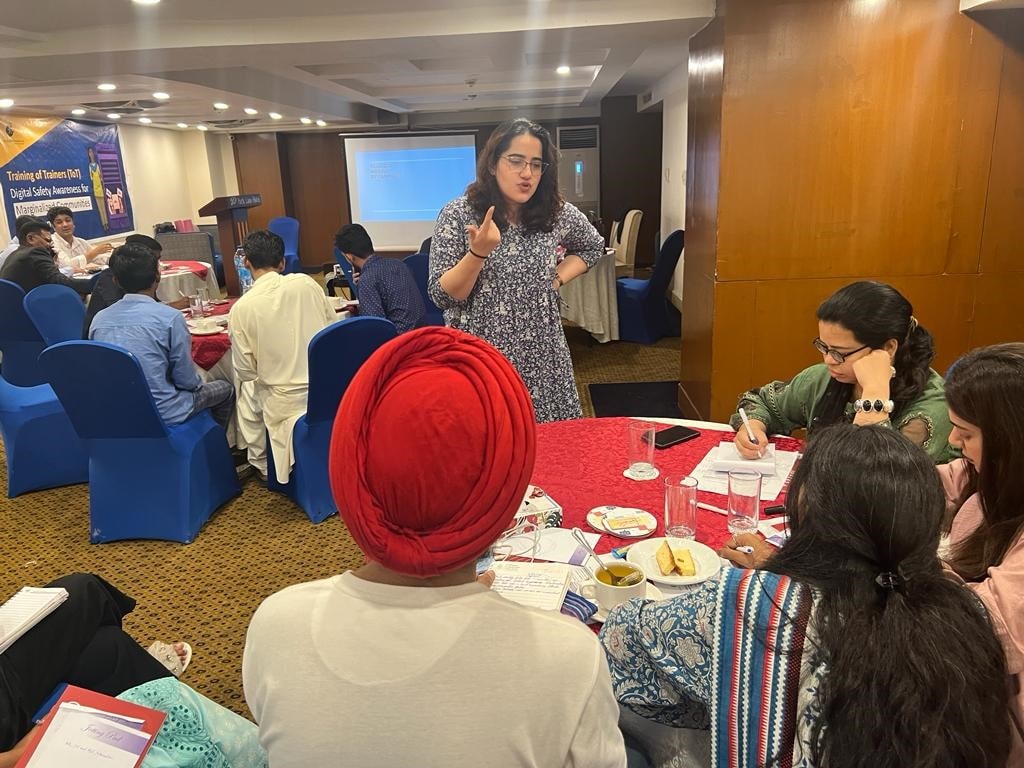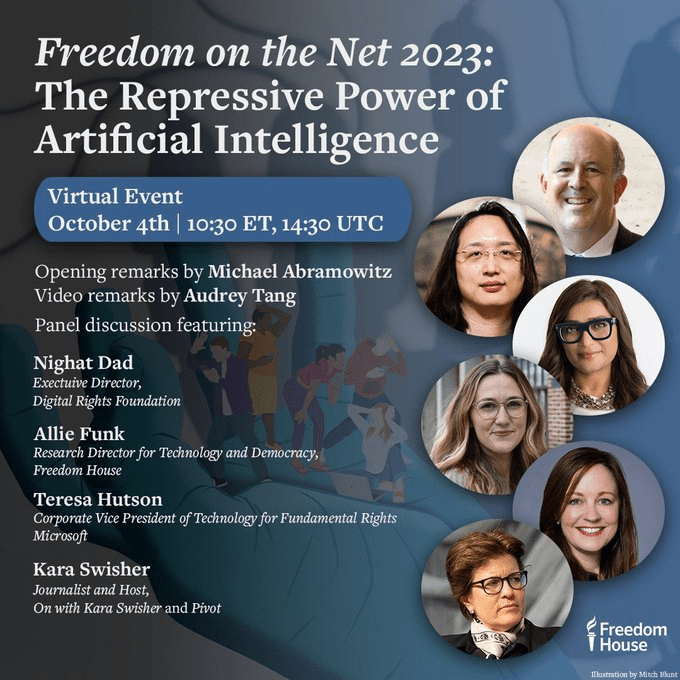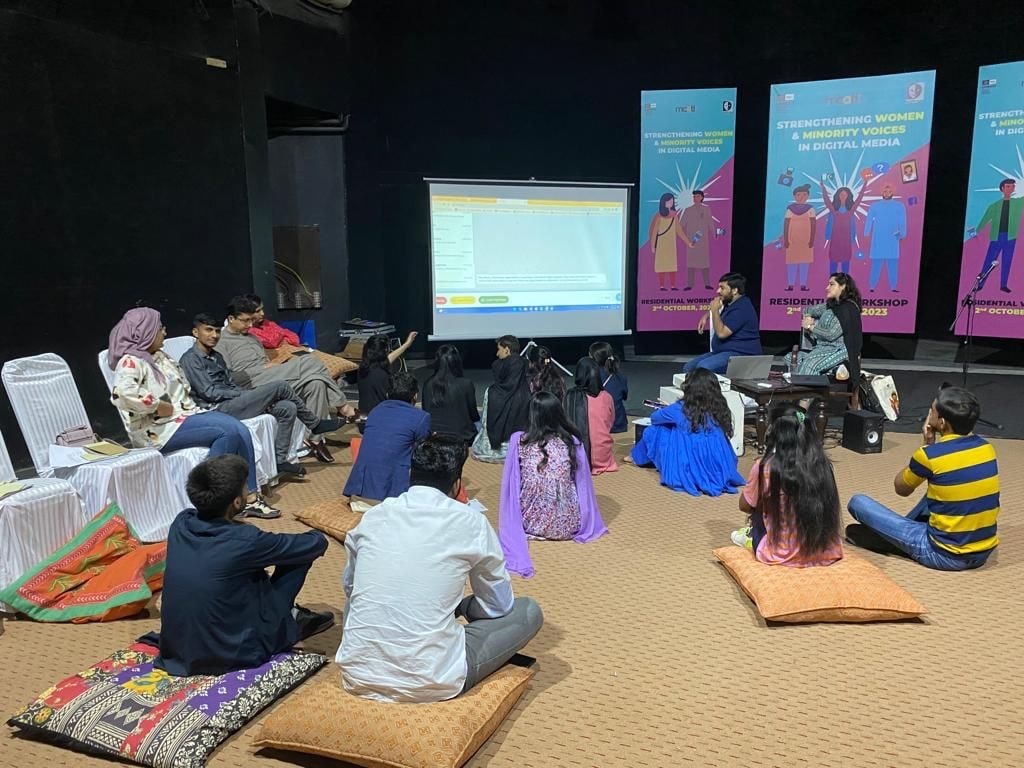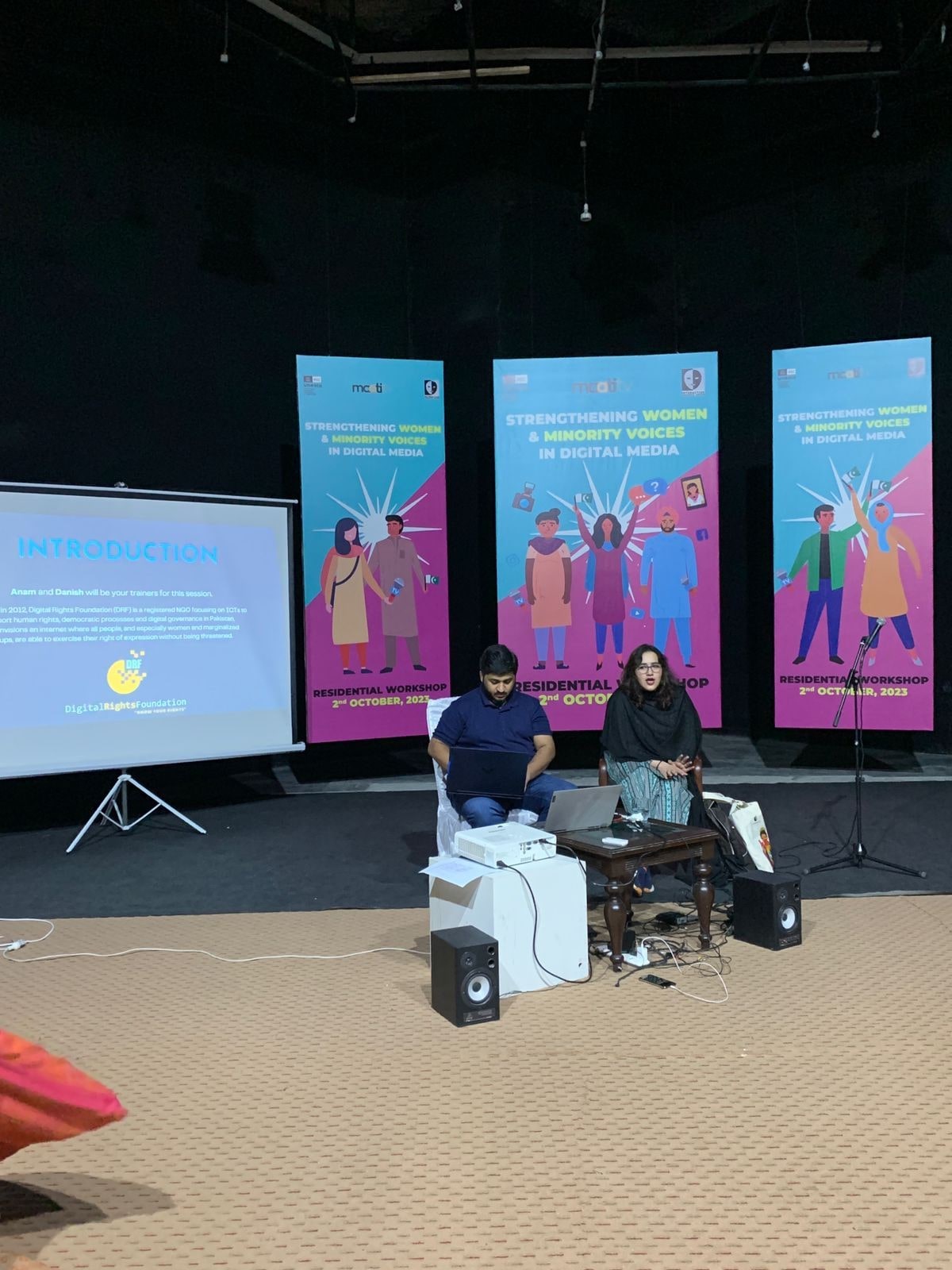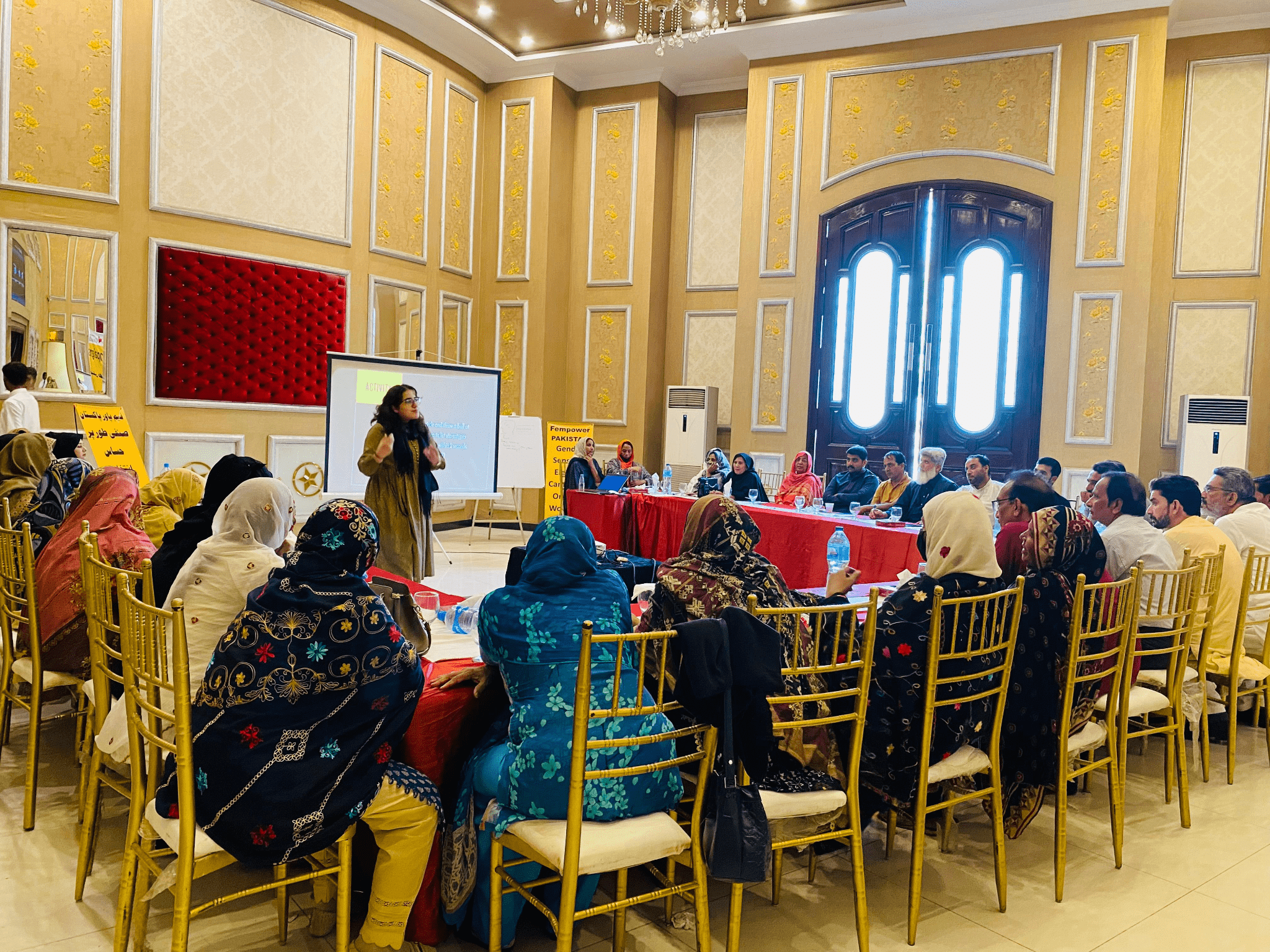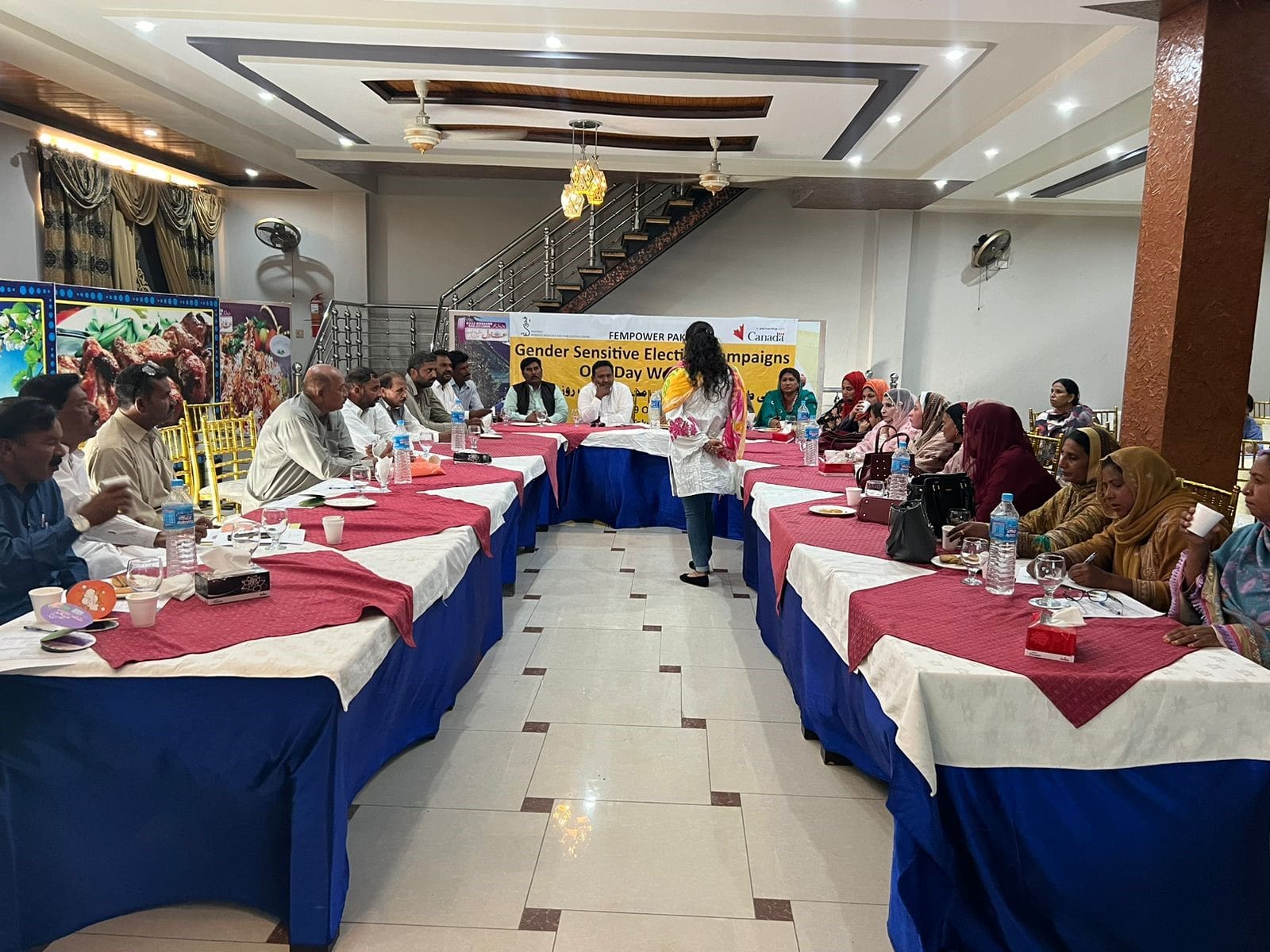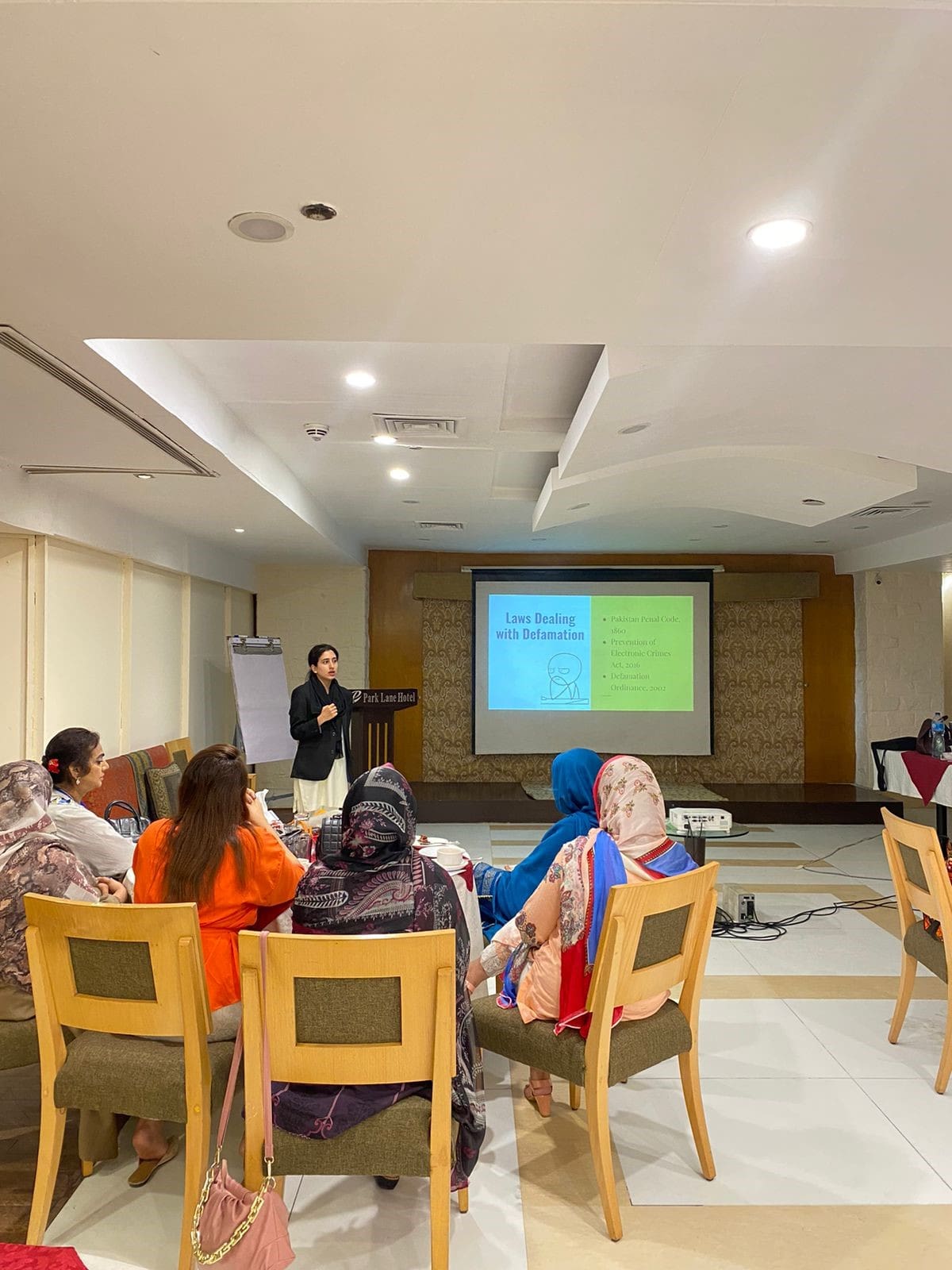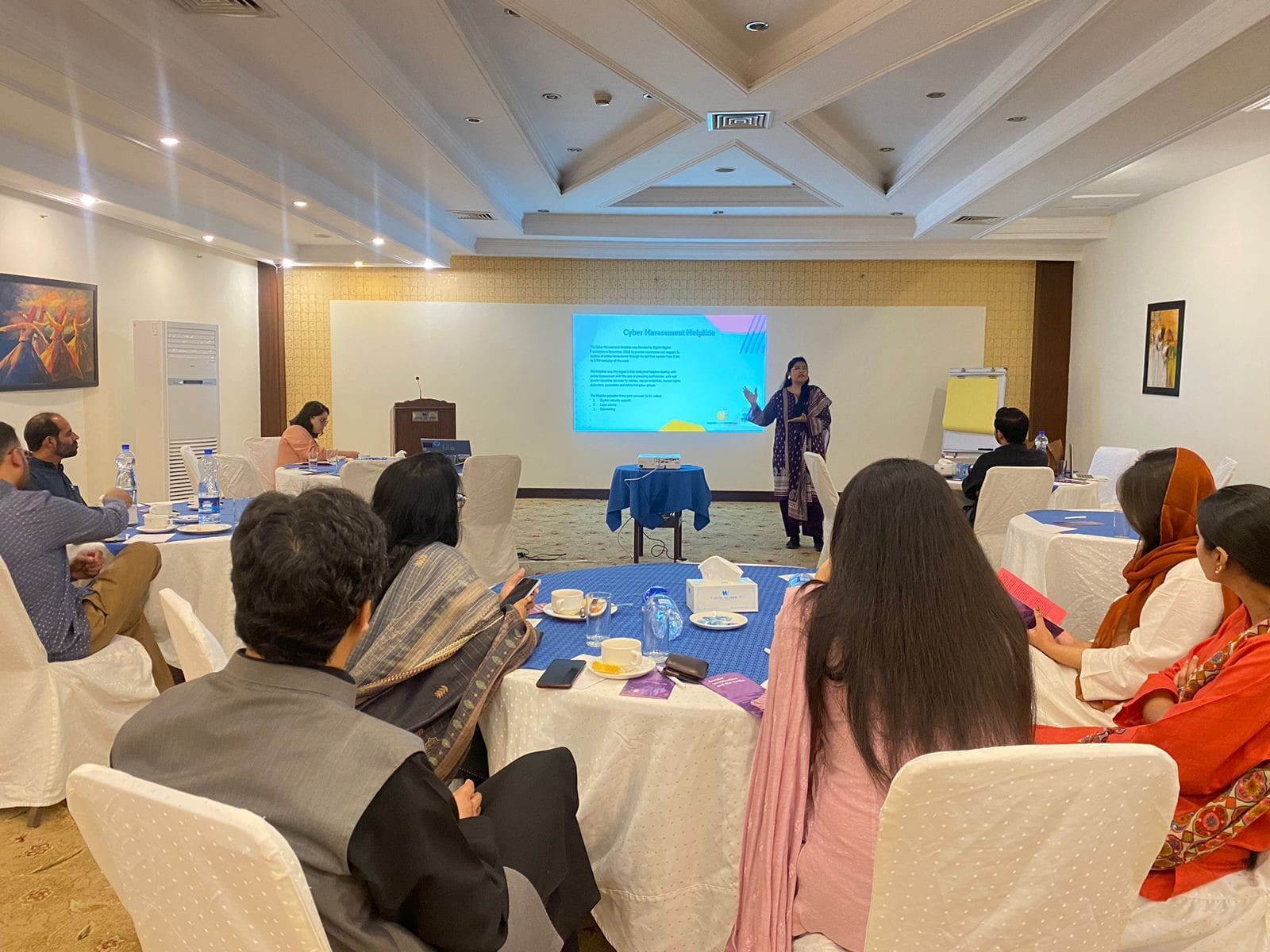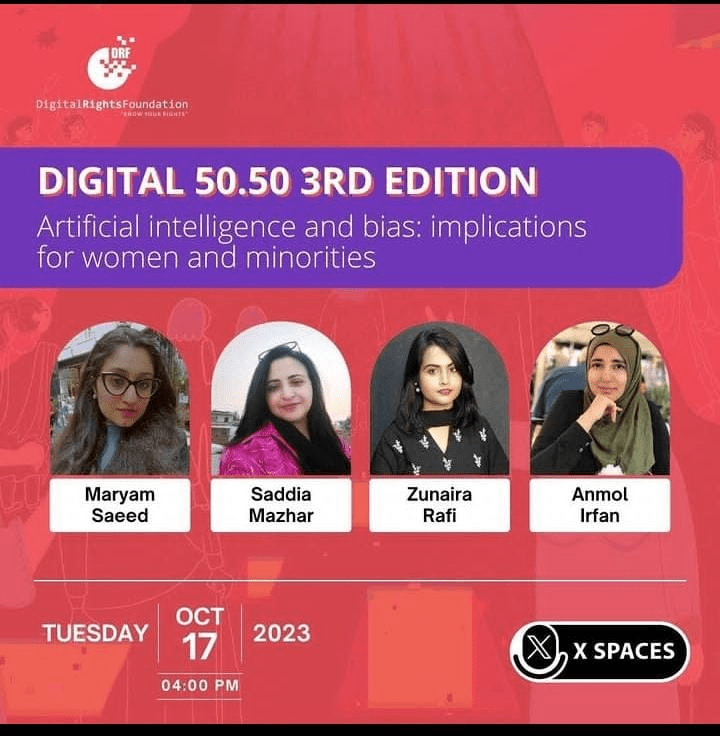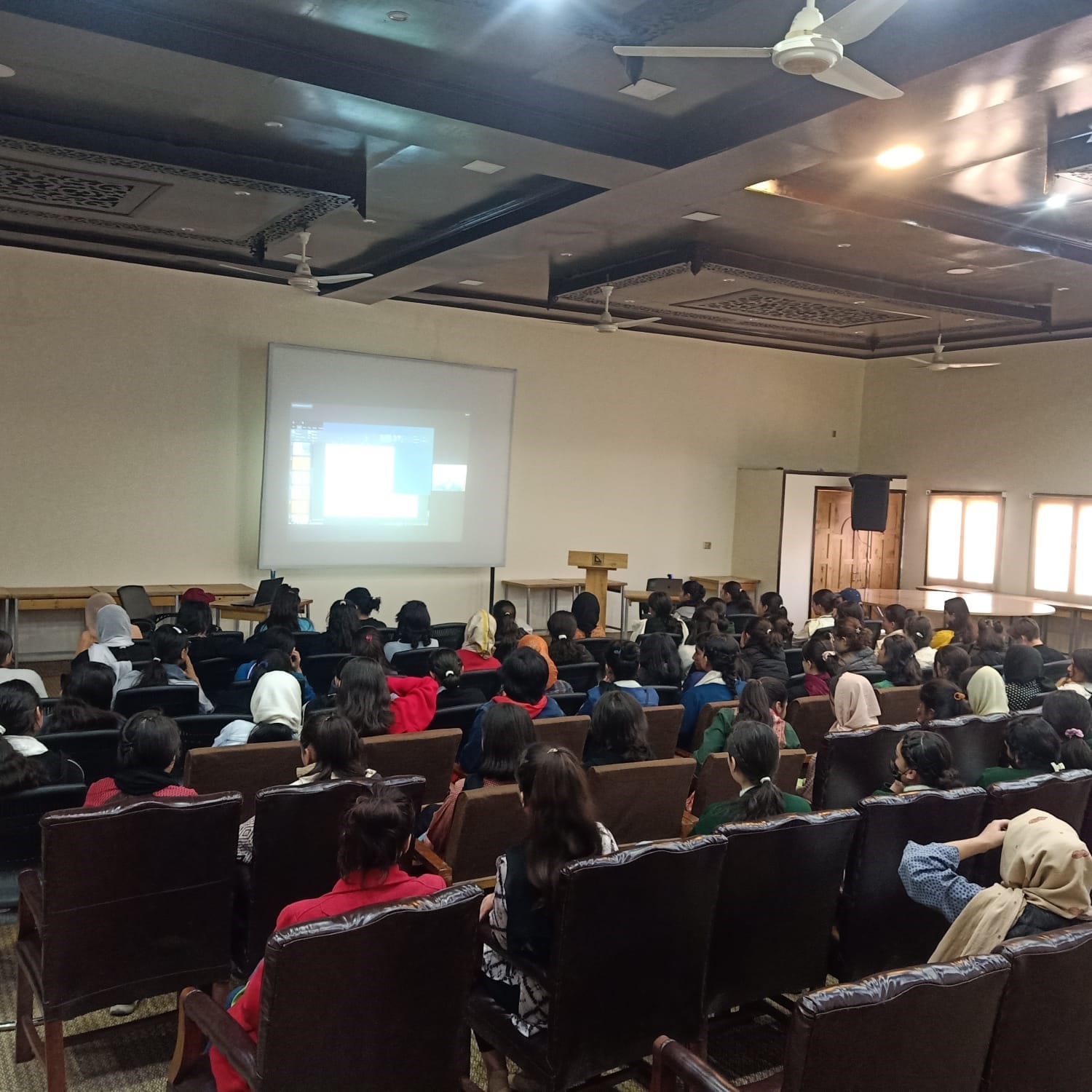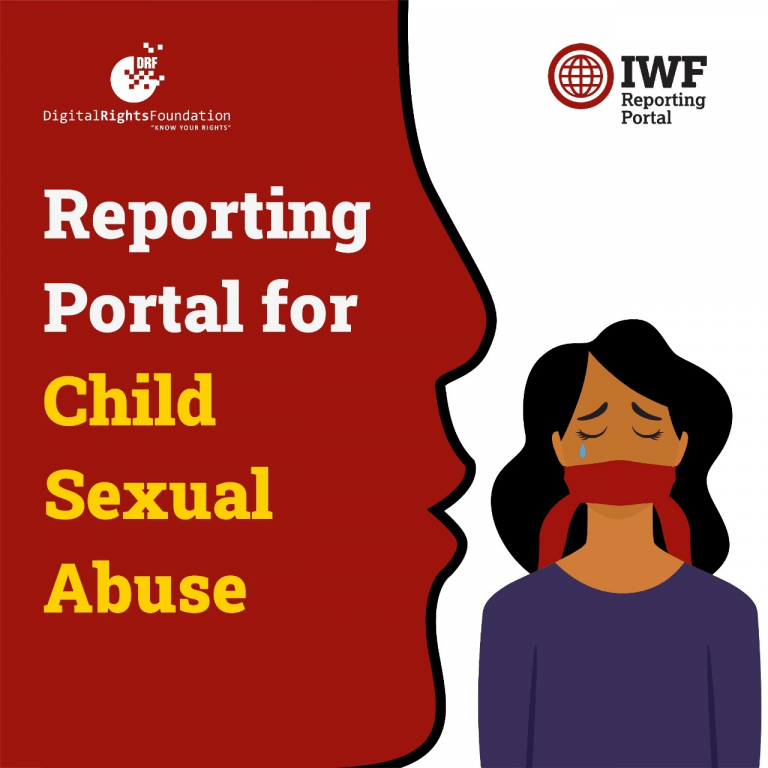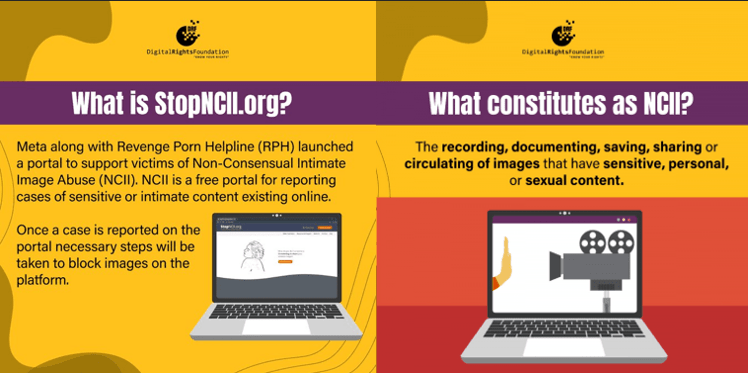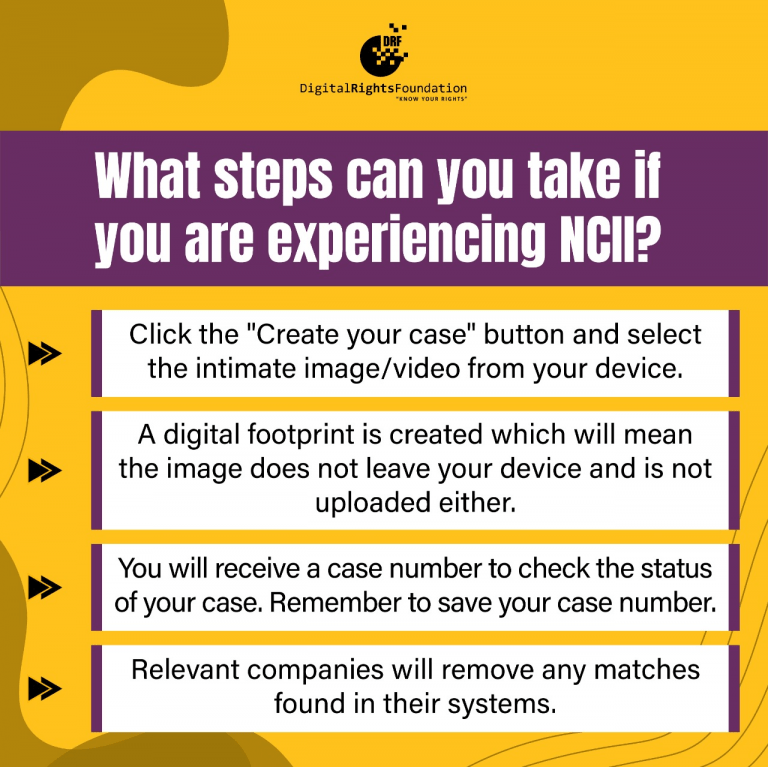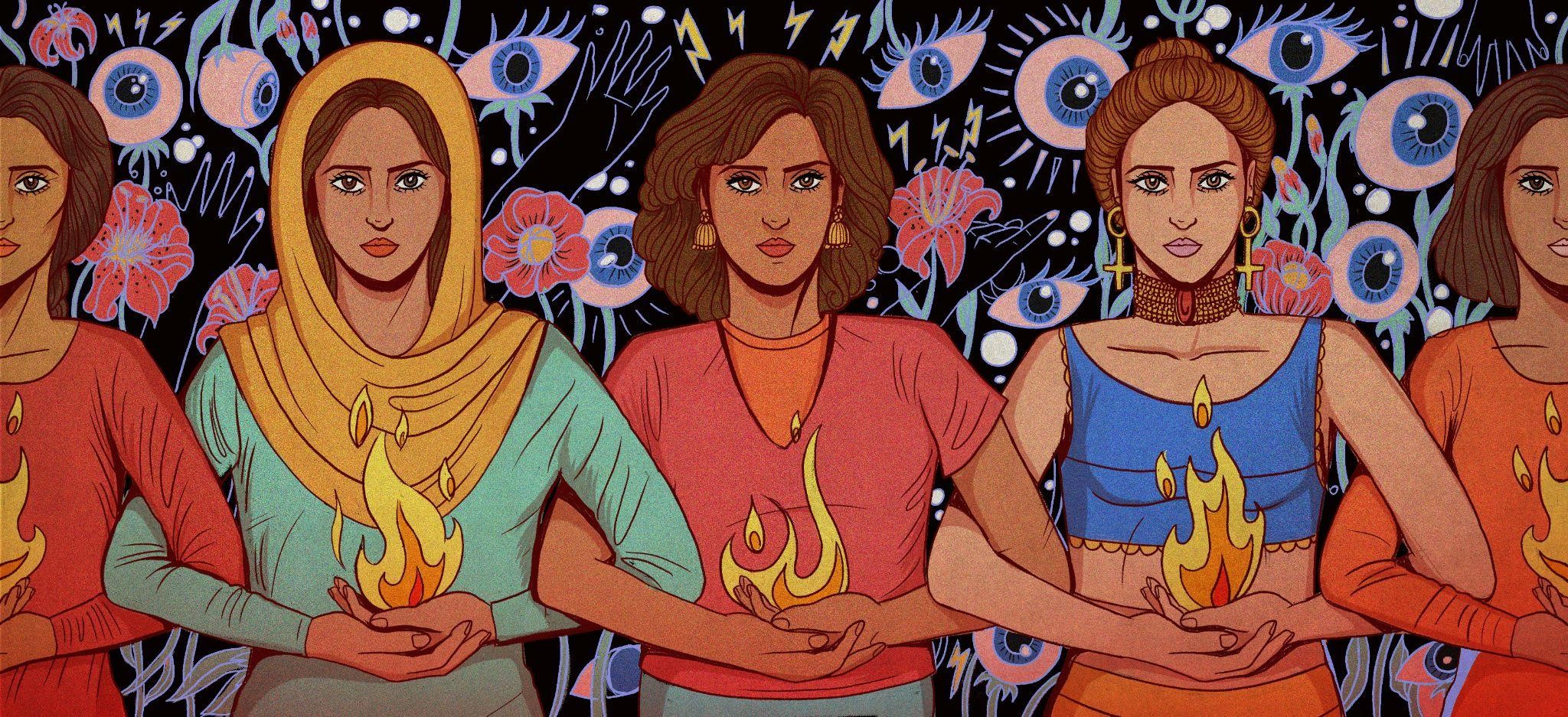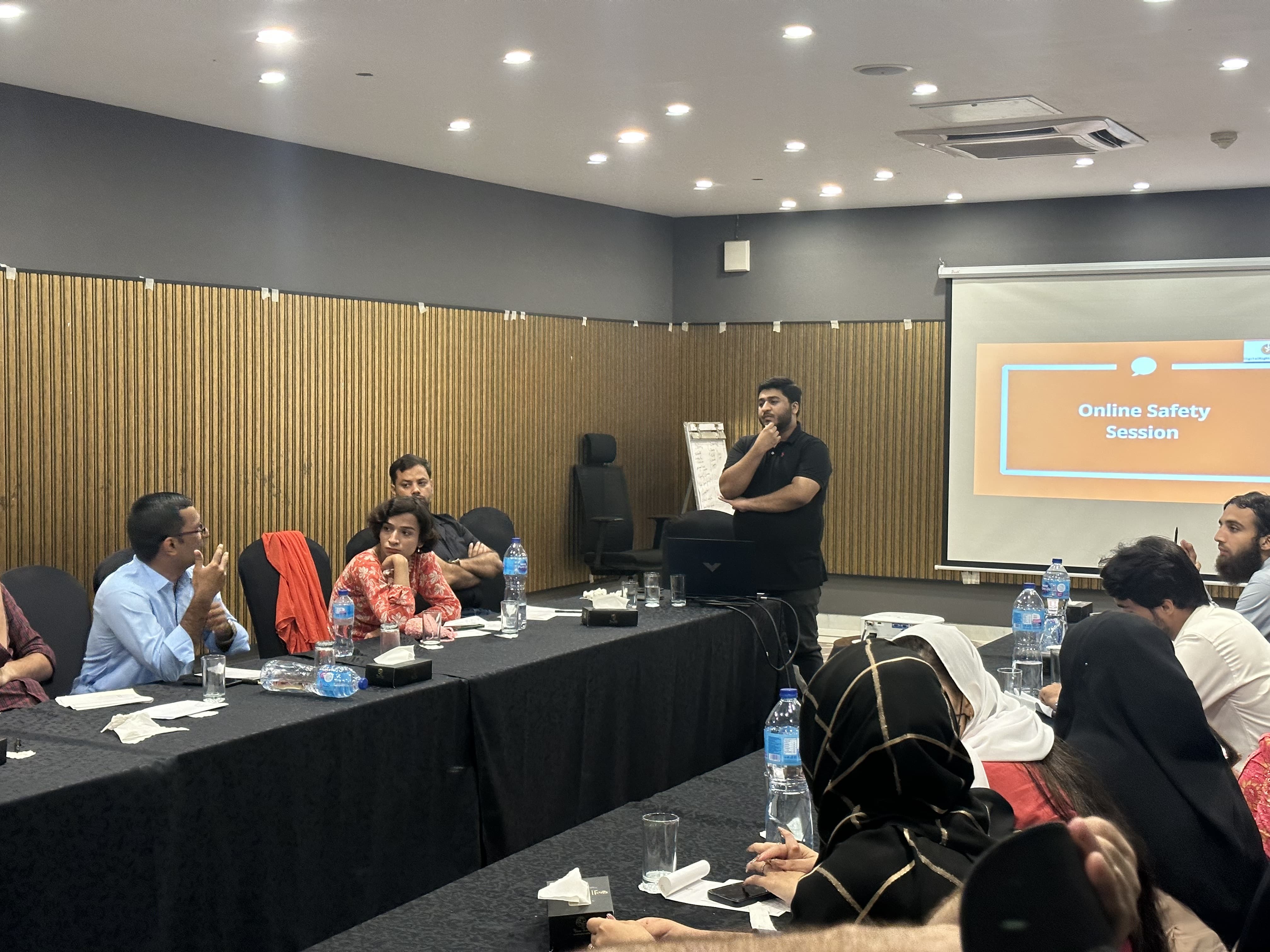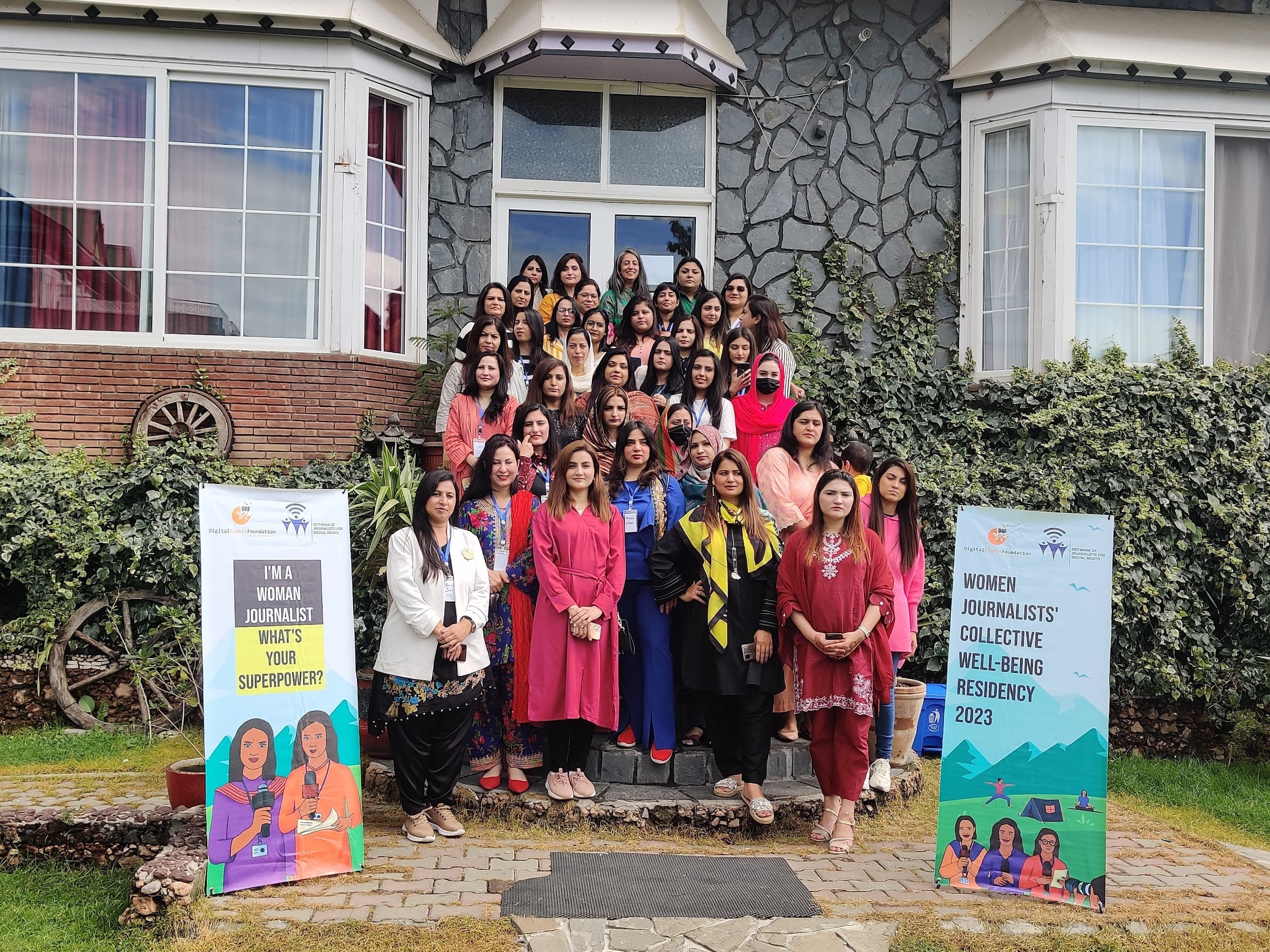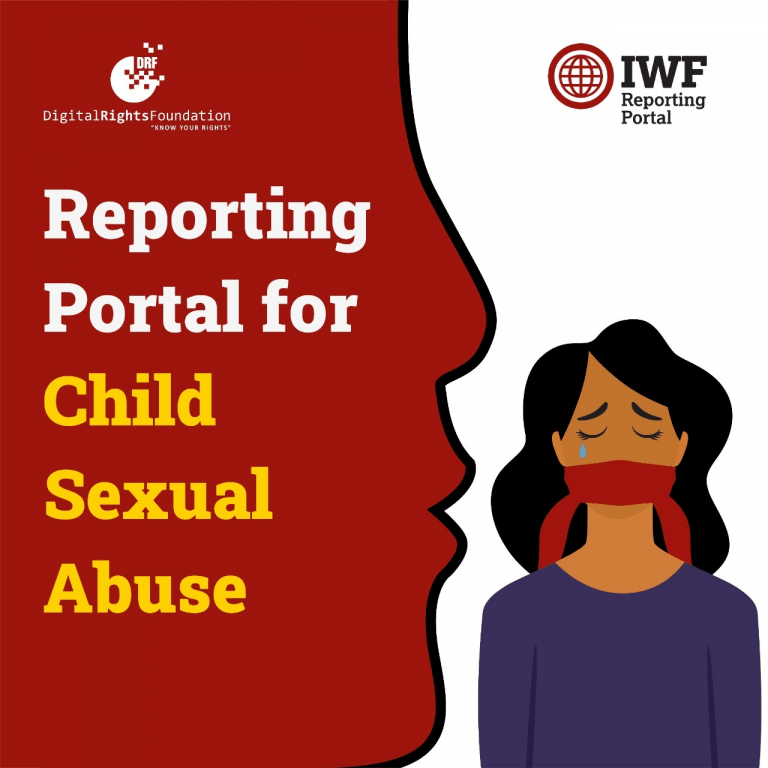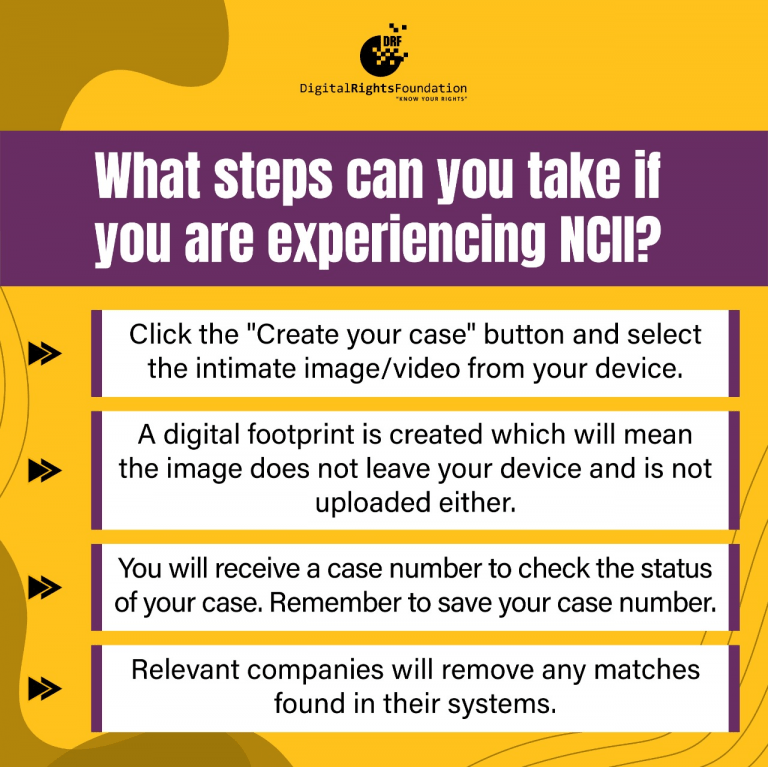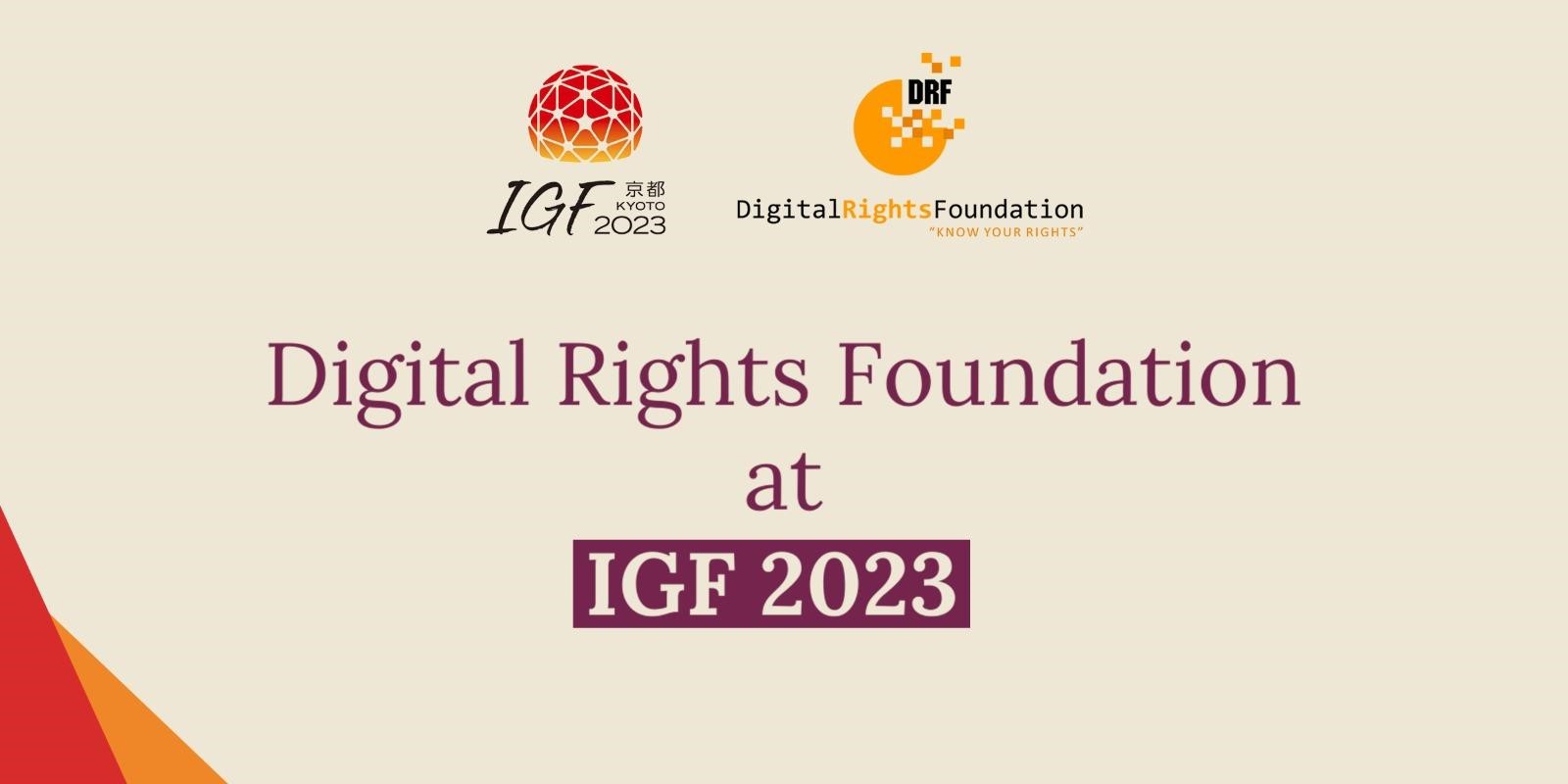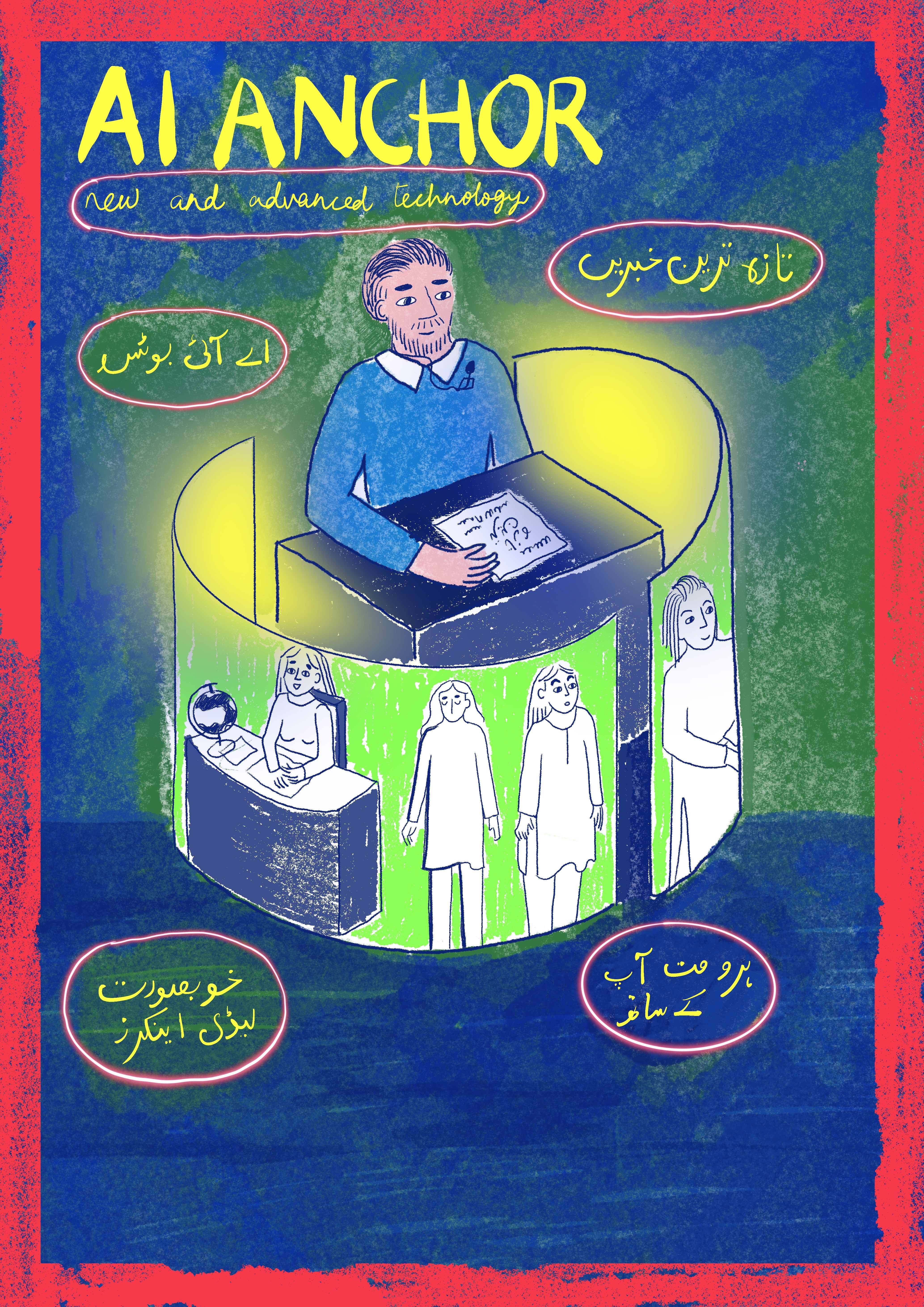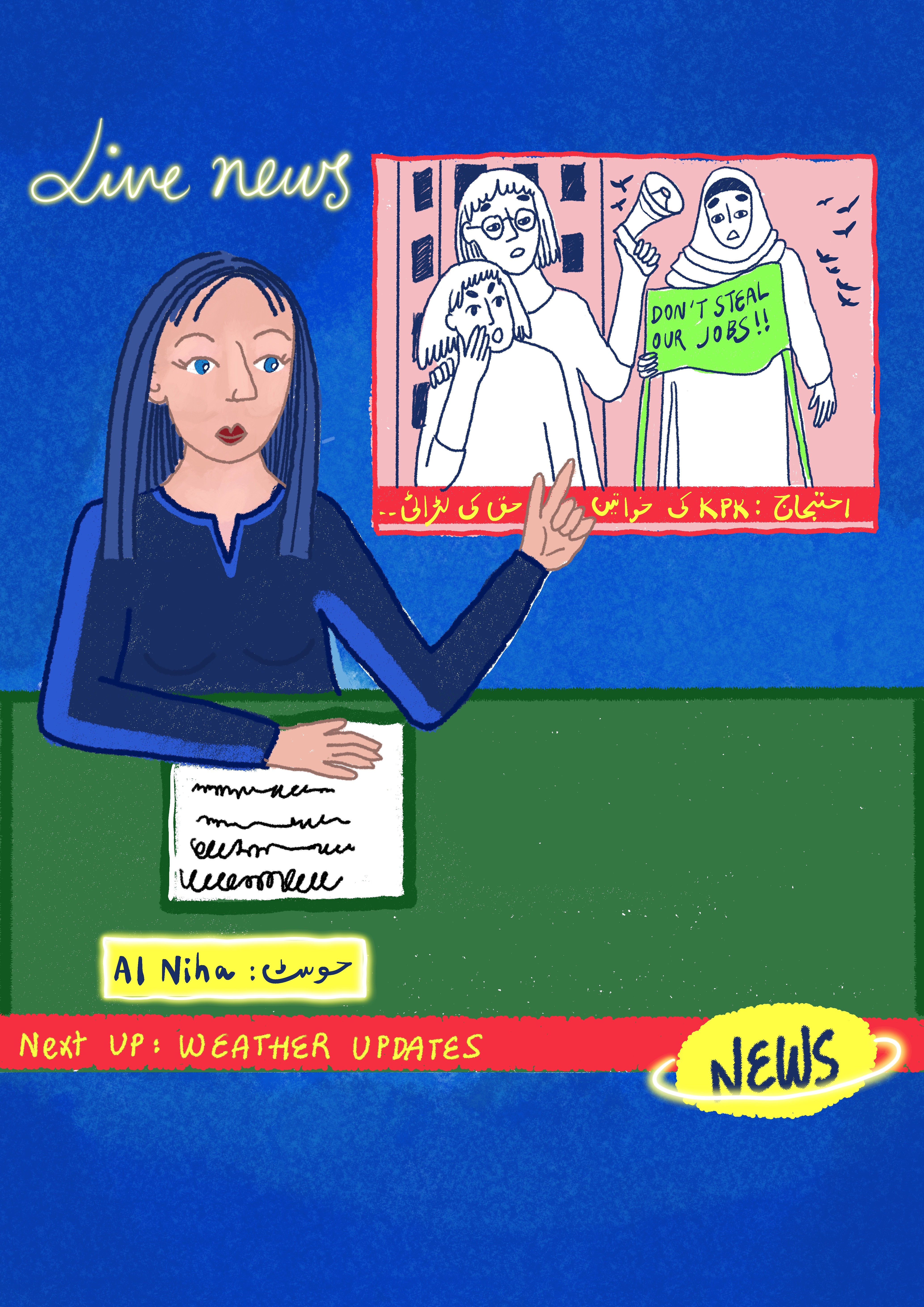November 13, 2023 - Comments Off on Pakistan Elections 2023: Calls Grow for Tech Platforms to Rein in Online Misinformation
Pakistan Elections 2023: Calls Grow for Tech Platforms to Rein in Online Misinformation
Tehreem Azeem
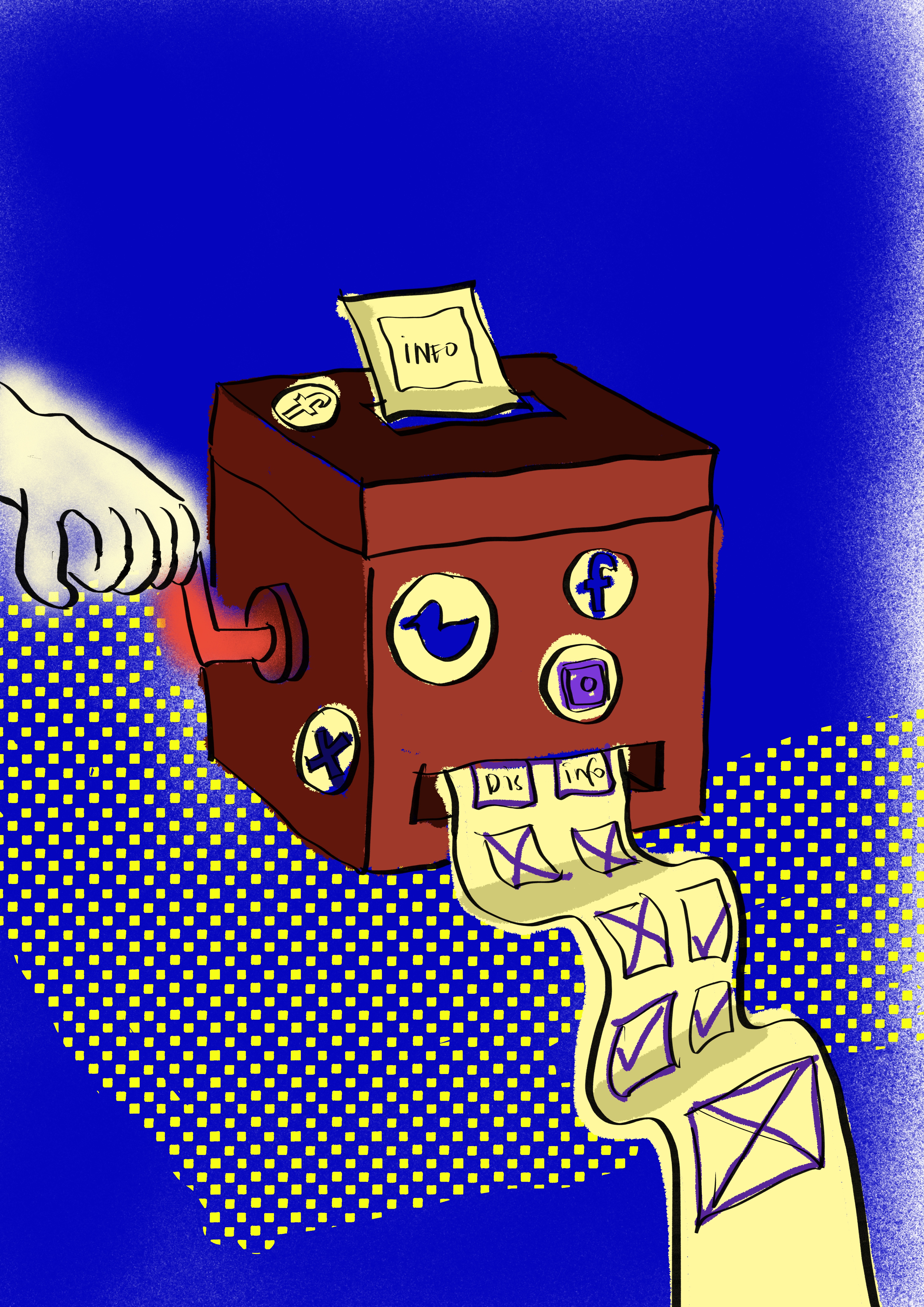 It is election time in Pakistan. It is the most crucial period when all political parties are actively engaged in increasing their contact with their voters to ensure they get maximum votes in the upcoming elections and rule the country for the next five years.
It is election time in Pakistan. It is the most crucial period when all political parties are actively engaged in increasing their contact with their voters to ensure they get maximum votes in the upcoming elections and rule the country for the next five years.
At present, the Election Commission of Pakistan (ECP) has not announced a specific date on which general elections will happen. ECP said on September 21st that the elections would occur sometime in late January 2024. This vague timeframe exceeds the November 6th deadline suggested by President Arif Alvi by over two months.
The Supreme Court issued notice on October 23rd to the ECP and the federal government regarding petitions demanding elections within 90 days of the National Assembly's dissolution. All eyes are now on the ECP to announce a definitive election date that ensures all parties have sufficient opportunity to contest the crucial polls.
Election Dynamics and Social Media Engagement in Pakistan
In the meantime, political parties are actively engaging their followers on their respective social media platforms to garner votes.
All these parties have massive social media presence, with Imran Khan’s Pakistan Tehreek-e-Insaaf (PTI) leading other political parties with over 8 million followers across Facebook, X (former Twitter) and YouTube. It is over twice as large as Pakistan Muslim League Nawaz PML(N)'s 3.6 million followers. Meanwhile, the Pakistan People’s Party (PPP) trails far behind both, with under a million followers.
These parties use social media platforms to livestream their rallies, broadcast leader addresses, and showcase their campaign efforts. They highlight their long-standing struggles, the hardships faced by their party leaders and their families, and their agendas for the people of the country. They also use their social media platforms to describe how they plan to achieve their goals and how other parties and the establishment have been hindering their efforts to work for the country.
Not to ignore, all these parties use social media to criticise and malign opposing parties and their leaders. They run organised campaigns that mostly involve disinformation, hate speech, falsehoods, inflammatory content, harassment and personal attacks on the opposing political parties, their leaders and workers. Despite the prevalence of such tactics, there appears to be little action from platforms against this type of problematic election-related content.
This raises questions about how tech giants like Meta, X (former Twitter) and YouTube are regulating their respective content policies and preventing the spread of misinformation, disinformation, hate speech, harassment, and inflammatory content on their platforms ahead of the elections.
Social Media Platforms’ Content Policies and their Application in Pakistan
With over 200 million citizens, Pakistan has the world's fifth-largest population. How this massive electorate uses social media to inform their vote and how the country's political parties use their social media platform to engage with their voters could significantly impact the election's outcome. Therefore, it is critical that tech companies ensure their platforms are not manipulated to spread false or misleading information about parties, candidates, or voting procedures. But it seems these tech giants have limited interests in regulating the country-specific platforms even in this crucial time.
So far, only Meta has unveiled its strategy for Pakistan's upcoming general election and ensure the safety of online communities. In its policy, it has announced to establish an election operations team to monitor risks in real-time, as well as to reinforce policies against harmful content and misinformation. Meta has also said that it will increase transparency around political advertising on its platforms. The company has also mentioned to advance its digital literacy and civic education programs both in English and Urdu in collaboration with local partners like the Election Commission of Pakistan.
On the other hand, X has yet to announce any policy. Since acquiring Twitter in late 2022, Elon Musk has made sweeping changes in the company. He has reversed several content moderation policies, like lifting the ban on political advertising that Twitter had instituted to combat misinformation. This ongoing turmoil and change in priorities under Musk's leadership means Twitter's capacity to consider and implement country-specific content moderation policies, especially for Pakistan, has likely reduced. The platform is currently more focused on broadly stabilising itself rather than enhancing its content policies for Pakistan.
YouTube is another platform that has yet to announce any specific policy changes regarding its content regulation in the lead-up to the Pakistani polls.
Shmyla Khan, a digital rights advocate and researcher based in Lahore, while talking on this very subject, raises her concerns about the limited presence of social media platforms in Pakistan. She points out a significant need for more resources and attention directed towards Pakistan despite its complex socio-political situation. "I think the biggest areas where social media platforms are currently falling short is the fact that there are not enough resources being directed at Pakistan to address the very complex socio-political situation in Pakistan and the kind of content that is coming through,” she said. She also notes the language barrier as a substantial challenge, as much of the content is in languages other than English.
"A lot of the time, it happens that the content is not in English. Also, the content in Pakistan is very different from that in Western countries. This sometimes results in certain content getting taken down when it should not be and content that should be taken down remaining up. This leads to false positives and negatives," she further said. She emphasises that this is a pressing issue as social media spaces become increasingly polarised and contested in Pakistan. She also mentioned Pakistan’s tightening grip on these platforms.
"The state is also tightening its grip on these platforms, making it even more crucial to ensure that political content is not influenced by either the state or existing biases that these companies have. So, that is perhaps the root cause – a lack of resources but also a lack of understanding of the particularities of the Pakistani context. Khan further elaborates on the role of different social media platforms in Pakistan. "Twitter, for example, is almost absent in Pakistan in terms of its content moderation,” she said.
She refers to a famous incident where Elon Musk dismantled Twitter's content moderation safety team, leading to an unregulated space with minimal human intervention and a slow and unresponsive reporting system. She underscores the need for additional resources for content moderation that account for Pakistan's unique dynamics.
Khan notes that platforms like WhatsApp and Instagram have distinct characteristics and usage patterns in Pakistan. WhatsApp, for instance, is widely popular as a private messaging app with limited moderation. Meanwhile, Instagram offers its unique dynamics. Khan says that visual content has a more significant impact in Pakistan, making it a hotspot for spreading disinformation and misinformation. She says that it is more challenging to moderate visual content effectively. She suggests that these platforms need to play a more active role in addressing this issue.
Khan also talked about transparency in content moderation as another significant concern. She says it remains unclear which criteria are being applied. She highlights the need for greater transparency and accountability in this process. "I think transparency is a huge issue. We do not know exactly what content is being taken down, what content is being taken down on government request, what is being taken down - is it risks to policy or aviation policies of these companies and platforms and what criteria are being applied,” she added.
Khan acknowledges that there exists a delicate balance between combating misinformation and protecting political content. While preventing the spread of false information is essential, she cautions against granting social media companies too much power in regulating political content. She says that striking the right balance between safeguarding democratic values and ensuring the freedom of expression is crucial in Pakistan.
Combating Misinformation and the Role of Citizens
Muhammad Awais, a resident of Lahore and a lecturer at the University of Management and Technology, says he is extremely concerned about the misinformation and disinformation that political parties spread on social media before elections. "I am concerned about misinformation. I am not concerned for myself but for those who live in villages. These days, everyone has access to social media. Everyone has Facebook, X, and everything. They cannot differentiate between factual information and misinformation, which is why it is so easy to spread propaganda about everything in Pakistan,” he said.
Awais's primary concern lies in the realm of elections. He points to a recent incident involving the anchor and columnist Orya Maqbool Jan, who shared an outdated picture of a rally and connected it to a recent rally of PMLN to suggest a decline in the popularity of the party.
"I am concerned about misinformation related to elections on social media. Yesterday Orya Maqbool Jan shared a post that the number of people in the jalsa of PMLN was less, but that was a picture of 2020. If a journalist gets involved in misinformation, then it is really concerning,” he said.
He says one should see the source of the information. If the source is coming from a credible source, then it is more likely to be true, but still, one needs to cross-check information from multiple credible sources near elections as even the credible sources could get biased at this time. "If the information is absent from credible sources, it likely isn't true, and there's a chance that someone has already published a fact check."
Awais says social media is the main source of information for people who do not have access to television channels and newspapers, such as overseas Pakistanis. "Social media is extremely important in these days. Many cases in the recent history of Pakistan have risen through social media, like that of the Zainab murder case. I take most of my information through social media. I have been living abroad for some years. So, overseas people always rely on social media to get their information. They do not have access to Pakistani television channels, so they rely more on social media because that is in access."
He commends the efforts made by platforms like X to combat misinformation. He says X publishes a note under a post that it is old or unrelated to the event being discussed. "X mentions under the post that this information is not true, and for factual information, go to this site. Once, I saw this disclaimer under Elon Musk’s tweet. Once under Biden’s tweet. I think that is the best strategy. The community notes on Twitter are very helpful. They say that this post is not related to the event being discussed, but it's related to some other event."
However, he believes that individuals must take responsibility for their media consumption habits. He says the social networking sites would only do a little as they have become huge giants. They need more audience, engagement, and content. An individual should increase its media literacy to differentiate between information and the one being circulated with wrong intentions.
Awais recounts how even close family members can sometimes fall prey to online misinformation. He shares an anecdote about his father accessing unreliable sources on social media. "My father would talk to me about the political scenarios when I would return home. I would ask him where you got this information from. He would say he got it from YouTube. I would tell him I can also make a channel on YouTube and can say anything. He would listen but the next day again, he would go on YouTube to get the information,” he said.
Despite Awais's attempts to steer his father towards more credible sources, the ease and convenience of social platforms meant his father kept returning to them for information. Awais says that digital media literacy is more important for this group of people. “I think the media literacy of people of this age group is so low. They become a victim of misinformation. Social media companies should act and give community notes or alerts that the picture or information being shared in this post is not related to this information but is old or irrelevant. So, the people who are not very media literate can understand it easily," he said. While social media platforms should take more responsibility, Awais believes the onus is also on citizens to be more discerning. He argues that increasing one's knowledge and media literacy is key to combating misinformation.
Dr. Shabbir Sarwar, a communication studies professor at the University of Punjab, explains how political parties and other groups use fake social media accounts to spread misinformation and attack opponents. While talking to Digital 50.50, Dr. Sarwar addresses a concerning phenomenon – the influence of fake accounts and trolls in shaping public opinion.
"This impression of public opinion or control of public opinion with the help of trolls, I mean some fake accounts created by vested groups like political parties, has happened. Whenever there is some critical analysis or comment, there is an attack using uncivil language and abuse to silence them." These fake accounts, according to Dr. Sarwar, are often used as tools for launching verbal and uncivil attacks on individuals who express critical views. "Whenever there is some critical analysis of a situation or a critical comment, there is an attack of verbal drags, argumentative attacks, not argumentative, rather the use of foul or uncivil language and an attack on the personality of that particular person. Sometimes, there is even the use of abusive language to silence or intimidate them."
Dr. Sarwar mentions specific instances of disinformation campaigns in Pakistan, particularly related to the country's politics. "There were multiple incidents when disinformation happened in an organised manner. First was when the PTI government faced a no-confidence motion, and there was an organised effort against the judiciary using manipulated images and hashtags."
Beyond policy measures, Dr. Sarwar highlights the need for more research and evidence-gathering on this issue. He points to a lack of comprehensive data on the impact of social media manipulation in Pakistan's political landscape. Dr. Sarwar states that filling this information gap is vital to truly understanding the scale and drivers of the problem. Fact-based insights can then inform solutions tailored to the Pakistani context. "PTA has not taken strict action against such coordinated manipulation of communication channels. In Pakistan's context, this is due to policy gaps, laws, and lack of implementation mechanisms."
He emphasised the need for a more comprehensive approach. "There is a gap in information and data in this particular scenario, and data is crucial to solving the problem related to social media manipulation in Pakistani politics, especially during elections," he added.
Dr. Sarwar suggests concrete policy and enforcement measures. He emphasises the need for the Election Commission of Pakistan to take the lead on this by laying down ground rules for social media conduct during the polls. Dr. Sarwar highlights that oversight cannot be biased and must apply uniformly to all political actors. Strict implementation mechanisms are required to ensure compliance.
"The Election Commission should ensure the formulation of a clear social media policy before conducting elections with input from various stakeholders. The implementation mechanism must be strict, non-partisan, and equal for all candidates and political parties," he stressed.
Elections can bring several challenges for any country and its people. The countries that prioritise democracy devise ways to develop robust policies and systems, coupled with a commitment from all stakeholders to uphold democratic principles to ensure the fairness and integrity of the electoral process. Living in a world where the virtual world carries as much importance as the real one, there is a need to demand social media companies ensure their platforms also follow the same democratic principles to help people make their decision to vote wisely.
In the case of Pakistan, it is highly important for social media platforms, regulatory bodies, and citizens to collaborate in striking a balance between combating misinformation and safeguarding democratic values. The future of Pakistan’s electoral integrity hinges on this collective effort, which would ensure that information in this crucial time is a tool for empowerment rather than manipulation.


















